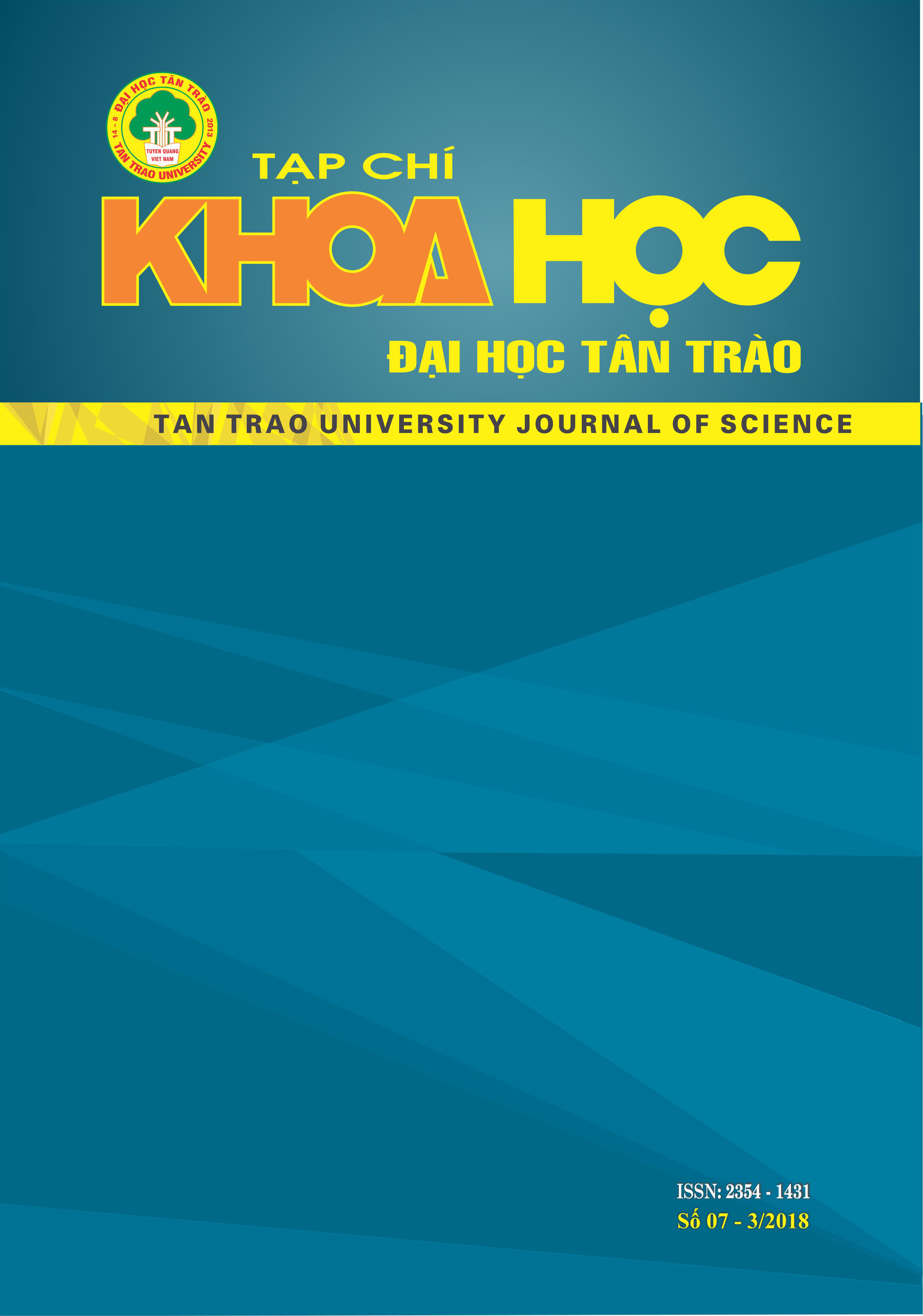Tiểu thuyết Chùm nho phẫn nộ của John Steinbeck và những “đối thoại” để ngỏ
DOI:
https://doi.org/10.51453/2354-1431/2018/142Từ khóa:
Chùm nho phẫn ná»™; tiểu thuyết; ý nghÄ©a; đối thoại; câu há»i; câu trả lá»i.Tóm tắt
Chùm nho phẫn nộ (1939) là một trong những tiểu thuyết thành công nhất của nhà văn John Steinbeck. Tác phẩm gồm 30 chương, phản ánh hiện thực Mỹ những năm đầu thế kỷ XX. Đây là tác phẩm góp phần quan trọng thuyết phục Viện Hàn lâm Thụy Điển trao giải Nobel văn chương năm 1962 cho sự nghiệp văn học của J. Steinbeck. Tại sao chúng ta vẫn tiếp tục nghiên cứu tác phẩm Chùm nho phẫn nộ? Đây là câu hỏi mà giới nghiên cứu văn học thế kỷ XXI đặt ra. Sự hấp dẫn của tác phẩm nằm trong cách viết của nhà văn. John Steinbeck đã tạo ra Chùm nho phẫn nộ như văn bản đối thoại. Bằng sự kết hợp thể loại phóng sự trong tiểu thuyết, ông đã đối thoại với văn học truyền thống về thể loại tiểu thuyết. Trong quan niệm của ông, tiểu thuyết hiện đại cần thay đổi. Trong tác phẩm này, ông cũng đối thoại với tôn giáo và lịch sử. Những băn khoăn của John Steinbecktrong Chùm nho phẫn nộ như những câu hỏi chưa có câu trả lời. Nó buộc người đọc phải nghiên cứu, giải thích, tìm nghĩa. Vì vậy, Chùm nho phẫn nộ không phải là tác phẩm chứng minh cho lịch sử mà đa nghĩa, chuyển tải những vấn đề nhân loại.
Tải xuống
Tài liệu tham khảo
1. Bragg, Melvyn, Steinbeck Today, Vol. 7, No.10), San Jose’ State University, California, 2016;
2. Hayashi, Tetshumaro, John Steinbeck: His Concept of Writing, The Carecrow Press, Inc. Metuchen, N.J., & London, 2012;
3. Pierre, Brian St, John Steinbeck – The California Years, San José State University, Ca, 1988;
4. Steinbeck E. and Robert W, Steinbeck: A Life in Letters, Viking Press, New York, 1979;
5. Steinbeck J, The Grapes of Wrath, Penguin Group (USA) Inc, 2006.
Tải xuống
Đã Xuất bản
Cách trích dẫn
Số
Chuyên mục
Giấy phép

Tác phẩm này được cấp phép theo Giấy phép Quốc tế Creative Commons Attribution-ShareAlike 4.0 .
Bài báo được xuất bản ở Tạp chí Khoa học Đại học Tân Trào được cấp phép theo giấy phép Ghi công - Chia sẻ tương tự 4.0 Quốc tế (CC BY-SA). Theo đó, các tác giả khác có thể sao chép, chuyển đổi hay phân phối lại các bài báo này với mục đích hợp pháp trên mọi phương tiện, với điều kiện họ trích dẫn tác giả, Tạp chí Khoa học Đại học Tân Trào và đường link đến bản quyền; nêu rõ các thay đổi đã thực hiện và các nghiên cứu đăng lại được tiến hành theo cùng một bản quyền.
Bản quyền bài báo thuộc về các tác giả, không hạn chế số lượng. Tạp chí Khoa học Tân Trào được cấp giấy phép không độc quyền để xuất bản bài báo với tư cách nhà xuất bản nguồn, kèm theo quyền thương mại để in các bài báo cung cấp cho các thư viện và cá nhân.
Mặc dù các điều khoản của giấy phép CC BY-SA không dành cho các tác giả (với tư cách là người giữ bản quyền của bài báo, họ không bị hạn chế về quyền hạn), khi gửi bài tới Tạp chí Khoa học Đại học Tân Trào, tác giả cần đáp ứng quyền của độc giả, và cần cấp quyền cho bên thứ 3 sử dụng bài báo của họ trong phạm vi của giấy phép.






